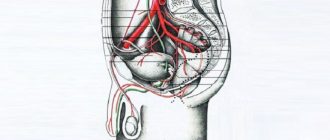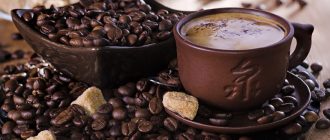Proper nutrition after removal of prostate adenoma requires the introduction of some restrictions. At first glance, they may seem too tough, but with the right choice of products and their combinations, the diet allows you to eat tasty and varied. Changing your diet helps speed up the recovery process, saturates the body with useful vitamins and microelements, and improves your general condition. It is recommended not only in the postoperative period, but also as a prevention of prostate diseases.
Why do you need a diet?
The first 3-7 days after transurethral resection of the prostate gland, the patient is in the hospital, so nutrition occurs in the hospital. On the first day after surgery, any food is prohibited. The diet in the first days after removal of prostate adenoma includes low-fat chicken broth, boiled chicken meat and diluted fruit juices and still water.
After this period, if no complications were identified, discharge occurs. The rehabilitation period lasts up to 2 months. Postoperative nutrition for prostate adenoma is an important component in restoring the body, preventing complications and relapse of the disease.
The difficulty lies in the fact that the consumption of a fairly wide range of products is prohibited, and the permitted and healthy ones do not cause obvious appetite.
Basic principles
Basic principles of diet after surgery TUR prostate adenoma:
- Compliance with drinking regime. You need to drink about 3 liters of fluid daily. This helps restore the process of normal urination.
- Balanced fractional meals. It is recommended to eat small amounts of food 5-6 times a day, taking breaks of 2-3 hours between them. Plant foods should prevail over foods of animal origin and make up about 70% of the diet.
- It is forbidden to eat food before bedtime; the last meal should be 3-4 hours before bedtime.
- It is forbidden to eat fatty, salty, fried and smoked foods. Food should not contain a lot of spices, as well as preservatives, dyes, flavors and emulsifiers.
Nutrition after removal of prostate cancer or adenoma, although it has many restrictions, but, with the right combination of products, can also be tasty and varied. It is important to remember that the body is weakened during this period, so food should be as easily digestible as possible.
Diet after prostate surgery can speed up the recovery of the body. It is advisable to use it in the future to prevent relapse of the disease and generally improve the condition of the body.
Recommended Products
After prostate removal surgery you can eat:
- Vegetables - pumpkin, radishes, turnips, tomatoes, cauliflower, rutabaga, cucumbers, celery, zucchini, potatoes, carrots, beets, lettuce.
- Fruits – citrus fruits, strawberries, raspberries, apples.
- Dried fruits – dried apricots, raisins, prunes, figs.
- Lean meat - chicken, rabbit, hare.
- Legumes – soybeans, lentils, beans.
- Cereals – oatmeal, buckwheat.
- Seafood - shrimp, mussels, salmon, salmon, halibut, sardines, herring (all seafood should not be salted or marinated),
- Fermented milk products - low-fat kefir and sour cream (in moderation), yogurt, feta cheese.
- Drinks – green tea, vegetable and fruit juices in moderation (preferably homemade from fresh ingredients).
- Other products are parsley, horseradish, mustard, parsnips, garlic (all of the above should be introduced gradually and in small quantities), pumpkin seeds and walnuts are very useful.
Dietary recommendations after BPH surgery include:
- adherence to food intake;
- eating small portions of food;
- increasing the proportion of protein foods;
- It is advisable to eat meat food in the first half of the day;
- increasing up to 70% plant-based products in the diet;
- cooking food by baking, boiling or stewing, but not frying;
- compliance with the drinking regime. It is advisable to drink non-carbonated mineral water, in small portions, but often. If nausea occurs, take breaks.
Prohibited Products
The diet after removal of a prostate tumor requires excluding the following foods:
- Any fried, smoked, salted, spicy dishes.
- Sausages.
- Bakery products.
- Canned food.
- Pates.
- Cheeses.
- Foods saturated with trans fats (chips, crackers, popcorn, mayonnaise).
- Sweets (sugar, cakes, pastries, chocolate).
- Coffee.
- Alcohol.



